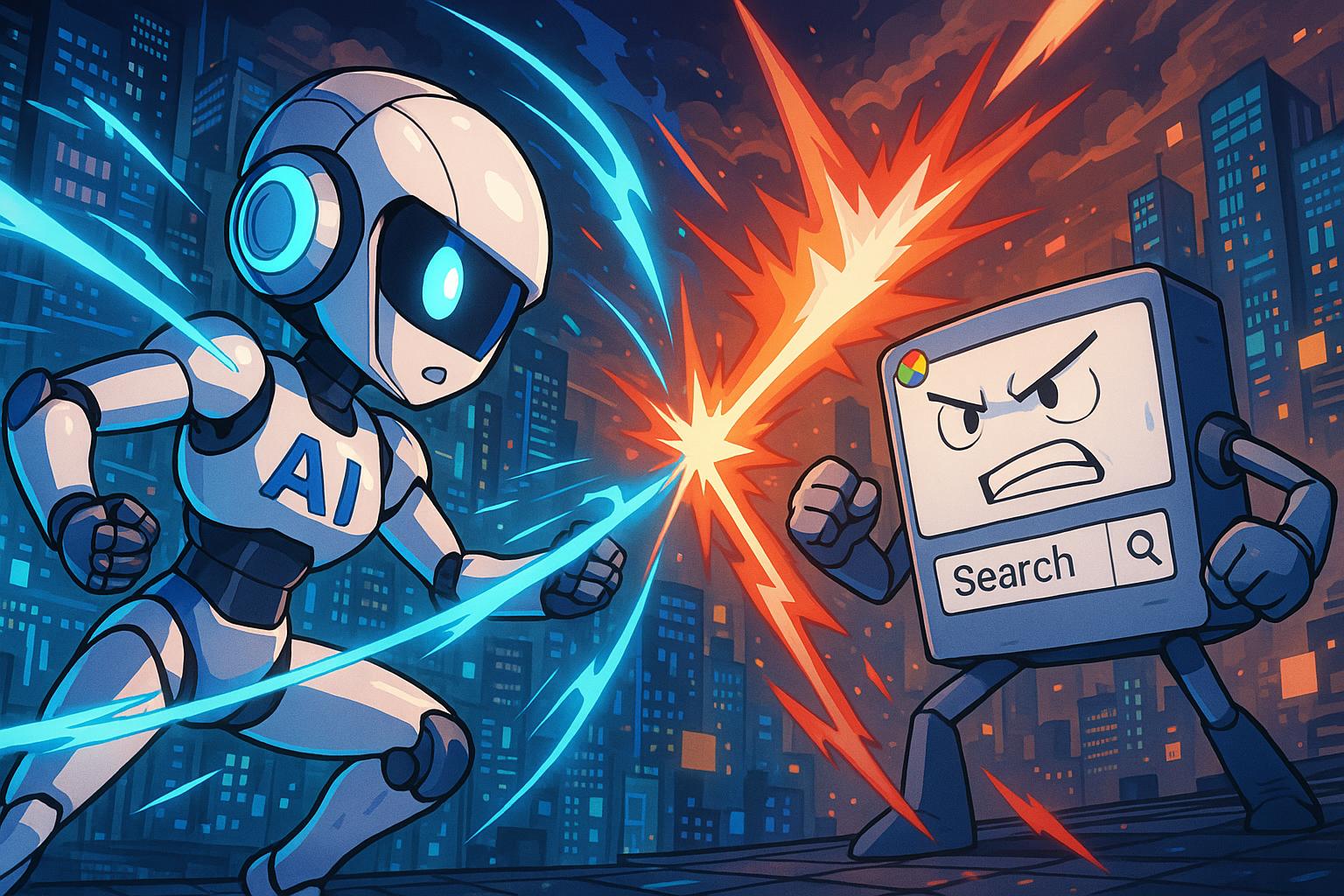The landscape of online search is undergoing a transformative shift, with the emergence of AI chatbots stirring debates about their potential to supplant traditional search engines like Google. Although there is a notable trend towards AI, it's essential to contextualise these developments and examine the overarching implications for users and marketers alike.
Recent statistics highlight that Google still commands a formidable share of online search traffic, even witnessing a slight uptick in daily visits amid the growing prominence of AI platforms. While Google has recently started incorporating AI-generated summaries into its search results, offering users more streamlined responses, AI chatbots—particularly ChatGPT—are rapidly becoming synonymous with online discovery. This shift is not merely a matter of user preference; it signals a broader evolution in the way information is sought and consumed.
Despite the excitement surrounding ChatGPT and similar tools, their reliability remains under scrutiny. Reports indicate that these AI models often deliver inaccurate information, which they package in confusing formats. A study conducted by the Tow Center for Digital Journalism demonstrated that several AI tools struggled with accuracy and proper source citation, underscoring the importance of human oversight in the verification process. This inconsistency is a critical factor that may hinder their ability to fully replace traditional search engines, particularly for complex queries requiring depth and precision.
Google is not sitting idle in the face of these advancements. Its recent initiatives include launching an AI-enhanced search engine that prioritises AI-generated responses for intricate inquiries. While this shift promises faster access to information, it raises concerns about the potential decrease in web traffic for publishers, which could disrupt digital advertising revenue. Google insists that classic web links will still play a vital role for simpler queries, striking a balance between AI-enhanced and traditional search methodologies.
Further complicating the narrative, Google's unsuccessful attempts to release a competitive tool to OpenAI's GPT-4, evidenced in the delays surrounding its Bard chatbot and the challenges faced by its Gemini project, highlight an underlying organisational inertia. Experts warn that without quicker implementation of generative AI, the risk of Google losing its dominant position in the market looms large.
On the other hand, the market presence of AI chatbots, though growing, appears to have had minimal impact on the overall traffic to established search engines. Recent analyses indicate that while user engagement with AI tools like ChatGPT has increased significantly, traditional search engines like Google continue to handle far more daily visits. This suggests that AI applications tend to capture only incremental activity rather than displacing established habits altogether.
The broader implications of this evolving landscape are significant for search engine marketing and the way information is curated online. As generative AI systems become increasingly integrated into everyday user experiences, concerns around misinformation, data privacy, and the ethical dimensions of AI development are paramount. Tech industry leaders must navigate these challenges cautiously, ensuring that the advancements made in AI complement rather than undermine the fundamental objective of fostering informed and reliable access to information.
As AI tools continue their ascent, the coming years will be crucial for defining the coexistence of traditional search engines and innovative AI-driven platforms. Finding a harmonious balance between these two paradigms may well shape the future of not only how we search for information but also the landscape of digital engagement as a whole.
Reference Map
- Paragraph 1: [1]
- Paragraph 2: [6], [7]
- Paragraph 3: [3]
- Paragraph 4: [4]
- Paragraph 5: [2]
- Paragraph 6: [5]
- Paragraph 7: [6], [7]
Source: Noah Wire Services
